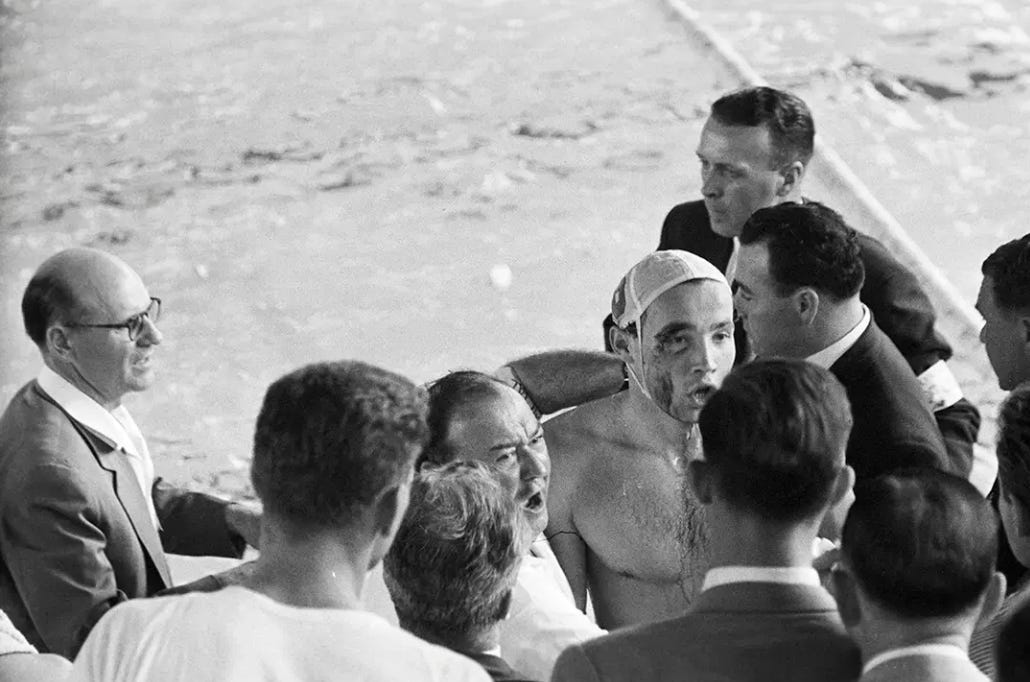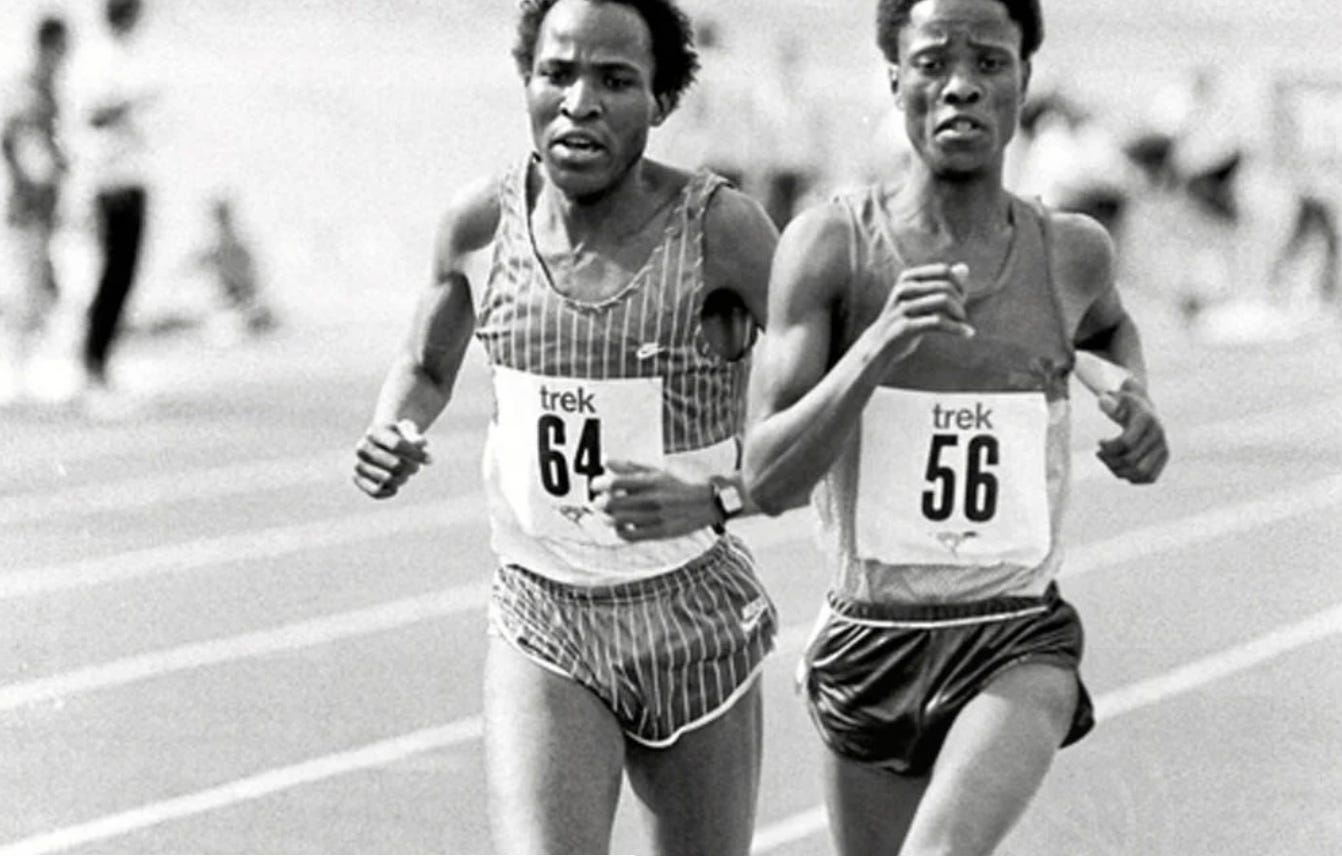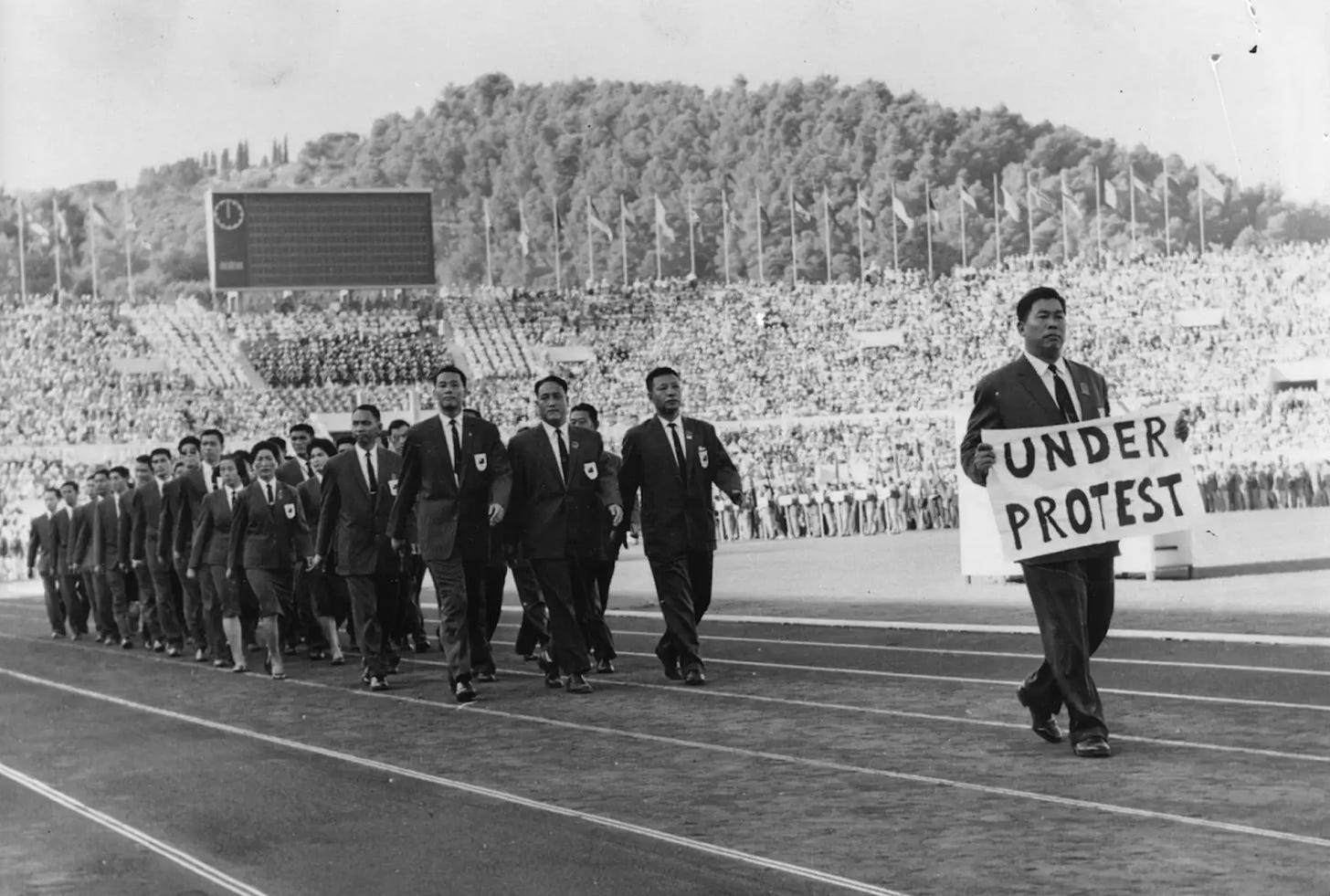
The 2024 Paris Olympics are upon us. Fans worldwide have descended on what might be my favorite European city to witness some of the best athletes compete for what may be their first and only Olympic Games.
Olympic athletes train their whole lives, dreaming of competing for gold. As fans, we love to cheer on our favorites. It may be the only time every four years we even consider ourselves patriots.
As athletes from around the world gather as the main act at every Olympic Games, politics and social issues can always be seen in the backdrop. This has been true since the Olympics started in ancient Greece.
Initially, competition was only reserved for the sons of free-born Greek parents. However, the judges of the Games relaxed the rules after Greece was conquered by Macedonia and Rome to allow anyone who spoke Greek to participate.
Nowadays, the Olympics are governed by the International Olympic Committee (IOC). Its main responsibilities include selecting host cities, establishing rules for the games, and ensuring fair play.
The IOC's mission states that it promotes unity, maintains political neutrality, and opposes any political abuse of sports and athletes. However, this is far from the reality of the Games. The IOC, governments, and athletes have often used the Olympics to make statements through bans, boycotts, and protests.
I tend to not care when athletes take a stand for what they believe is right. You can either love it or hate it, but the act isn’t impacting the outcome of the sport. However, when governing bodies, such as the IOC, make a politically-infused ruling, it can have a non-trivial impact on the integrity of the competition and creates a difficult standard to hold over time.
With so many countries competing in the Games, all with their own worldviews, life experiences, and opinions, politics is bound to bleed onto the Olympic fields and courts. For better or worse, here are some of the most impactful and memorable intersections of the Olympics and politics (IOC-driven and not) and its impact on the people we all invest in—the athletes.
The Nazi Olympics, 1936
In 1931, Berlin won the bid for the 1936 Summer Olympics, which many felt was a welcome gesture towards Germany following its World War I defeat. However, Adolf Hitler became the chancellor of Germany in 1933. The Nazi party quickly turned Germany into a one-party state that persecuted Jews, Roma (Gypsies), and all political opponents. The Nazi’s control extended to sports, where they promoted the ‘Aryan race’, claiming physical superiority over all other races.
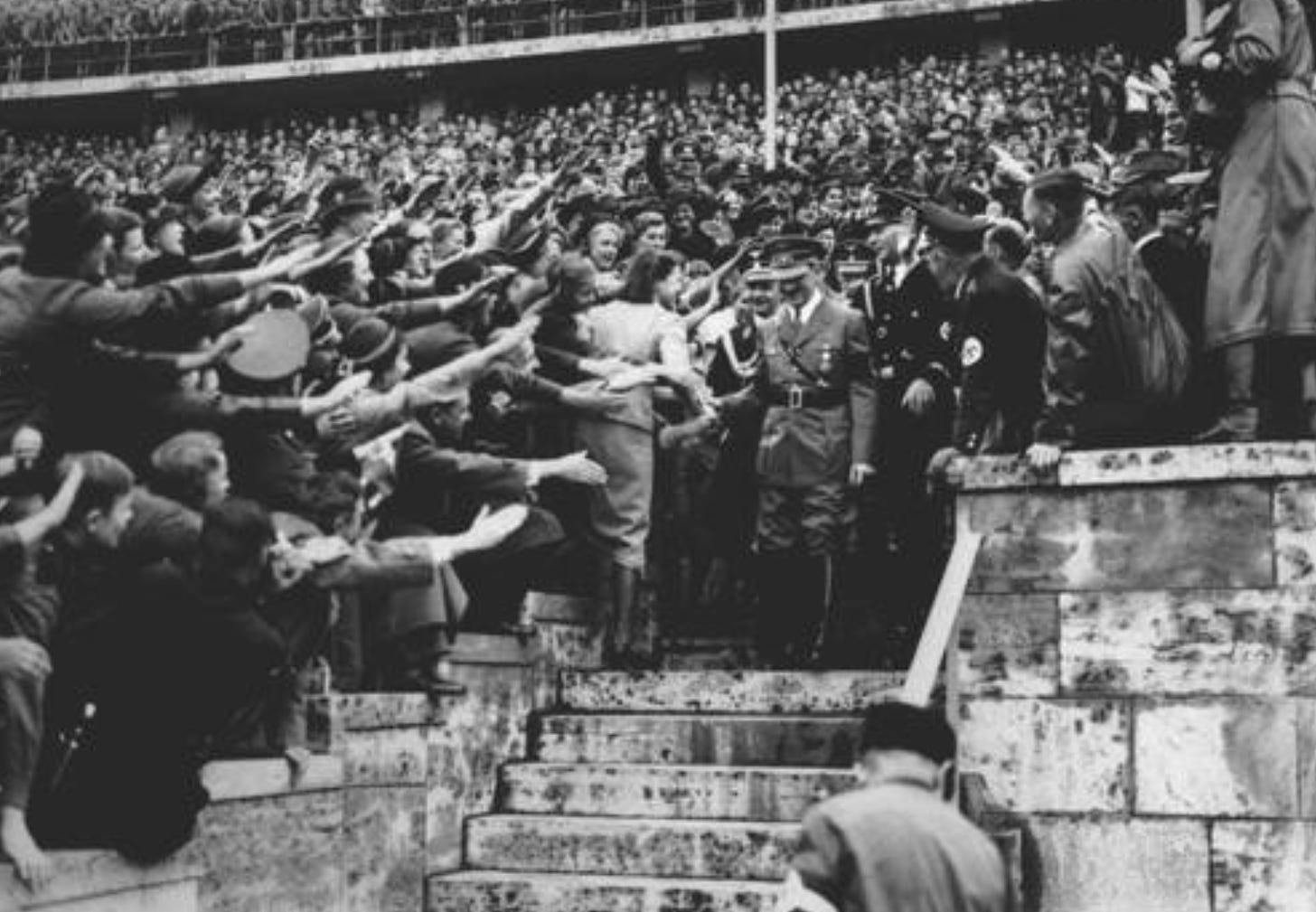
An ‘Aryan only’ policy was instituted in all German athletics. Jewish and Roma athletes, including those who were world-class, were excluded from the 1936 Olympic team.
One of the banned German athletes was the Jewish high jumper, Gretel Bergmann. Despite being banned in 1933, Bergmann was forced by the Nazis to return (her family was threatened if she didn’t) to compete with the German team in preparation for the Olympics to try and show the world that they were unbiased in their team selections.
Before the Olympics, Bergmann matched the high jump record. However, two weeks before the opening ceremonies of the Olympics, she was told she was being removed from the team for underperformance. There was one ‘non-Aryan’ who was able to compete for Germany, though. Helene Mayer, the daughter of a Jew, won a silver medal in fencing and gave the Nazi salute on the podium.
As the Olympics drew near, the Nazis removed anti-Jewish signs on the streets of Berlin and propaganda from their news publications. The ruse worked, as most foreign journalists reported about a peaceful and tolerant Germany. Little did they know that just under one thousand Roma living in Berlin were arrested and put in an internment camp so they wouldn’t be seen by guests as they arrived.
Germany ended up winning 89 medals, the most of any country, but not before Jesse Owens won four gold medals (check out this video about his Olympic accomplishments). Altogether, Black Americans won 14 medals in their best attempt to undermine propaganda about ‘Aryan superiority.’ Three years after the Games, Germany invaded Poland, which ushered in World War II.
The First Olympic Boycotts, 1956
The 1956 Melbourne Olympics marked a series of firsts: the first Games held in the Southern Hemisphere and the first outside Europe and North America. These Games were also the first to experience significant boycotts.
China abstained from the Games because the IOC chose to include Taiwan.
Egypt, Iraq, and Lebanon boycotted in protest of the invasion of Egypt by France, Israel, and the UK over the nationalization of the Suez Canal.
Following the Soviet Union invasion of Hungary to crush a rebellion, the Netherlands, Spain, and Switzerland withdrew in support. In total, nine teams boycotted the 1956 Games for various political reasons.
The Hungarian Revolution occurred just one month before the Olympics as an attempt to overthrow the government and the Soviet Union’s stranglehold on Hungary. The uprising lasted 12 days before it was squashed by Soviet troops and tanks. Thousands of Hungarians were killed and thousands more fled their beloved country.
The Hungary and Soviet conflict came to a dramatic head when the two countries met in a water polo semifinal, which later became known as the ‘Blood in the Water’ match.
The atmosphere at the match was extremely tense and the play was physical throughout. Hungary, the reigning Olympic champions, had a 4-0 lead towards the end of the match. That’s when Hungarian player Ervin Zádor was punched in the face by the Soviet, Valentin Prokopov. Blood poured into the pool, which inflamed an already hostile crowd. The Hungarian spectators tried to storm the pool and fight the Soviets before being stopped by the police.
The match was called and Hungary was deemed the winner. The match is now remembered as one of the most politically charged sporting events ever.
Amidst all the tensions at the 1956 Olympics, a young Melburnian named John Ian Wing proposed a peaceful gesture for the closing ceremony. Instead of marching separately behind their national flags, athletes mingled together, symbolizing unity and camaraderie. This gesture started an enduring Olympic tradition that still continues today.
The South African Apartheid Ban, 1964–1988
The IOC withdrew its invitation to South Africa to attend the 1964 Summer Olympics after Jan de Klerk of the apartheid state said that athletes would not be racially integrated. When South Africa agreed they would be multi-racial for the 1968 Olympic Games, the IOC was ready to invite them back. However, with boycotts now a real threat after 1956, other African nations said they would abandon the Games if South Africa attended. The invitation to South Africa never came.
South Africa was at the center of controversy again in 1976, despite not attending the Games. New Zealand's rugby team played on tour in a racially segregated South Africa before the Olympics in Montreal, and 20 African nations staged a boycott in protest. Senegal and the Ivory Coast were the only two African countries to fully compete in the Games.
Many South African athletes were deprived of having a chance to fulfill their dreams at the Olympic Games due to the apartheid ban. Perhaps one of the most talented athletes from South Africa never able to compete was Matthews Motshwarateu, a Black South African. Motshwarateu was a long-distance runner nicknamed 'Loop en Val' (Afrikaans for 'walk and fall') because of his awkward running motion that looked like he was going to fall over.
Motshwarateu was an outstanding runner. He set a 10,000-meter world record in 1980. While running at UTEP he won the 1981 NCAA Cross Country Championship, defeating a future Olympic bronze medalist and a current Olympic silver medalist. Motshwarateu also won a silver medal at the 1992 African Championships. To say he was a decorated athlete is an understatement.
At one point, Motshwarateu moved to Botswana to try to compete internationally and get around the apartheid ban. He ran for Botswana once, but then returned home to South Africa when he was past his prime and ran into the early 1990s.
Tragically, he was shot and killed in the township of Soweto at the age of 43 while thieves tried to take his wallet with the equivalent of around $2.00 in it.
The Russian and Belarus Bans, 2024
With the Russian invasion of Ukraine, the IOC decided to ban athletes from Russia and Belarus from competing under their country’s name. However, athletes who “actively support the war” were deemed not eligible to compete. This ruling caused many athletes to be banned from the Games this year, including Russian wrestler and reigning Olympic champion, Abdulrashid Sadulaev.
Russia and Belarus will only be sending 15 and 17 athletes to the Games, respectively. Compare that to the Tokyo Games in 2021, where Russia sent 335 athletes and Belarus sent 101.
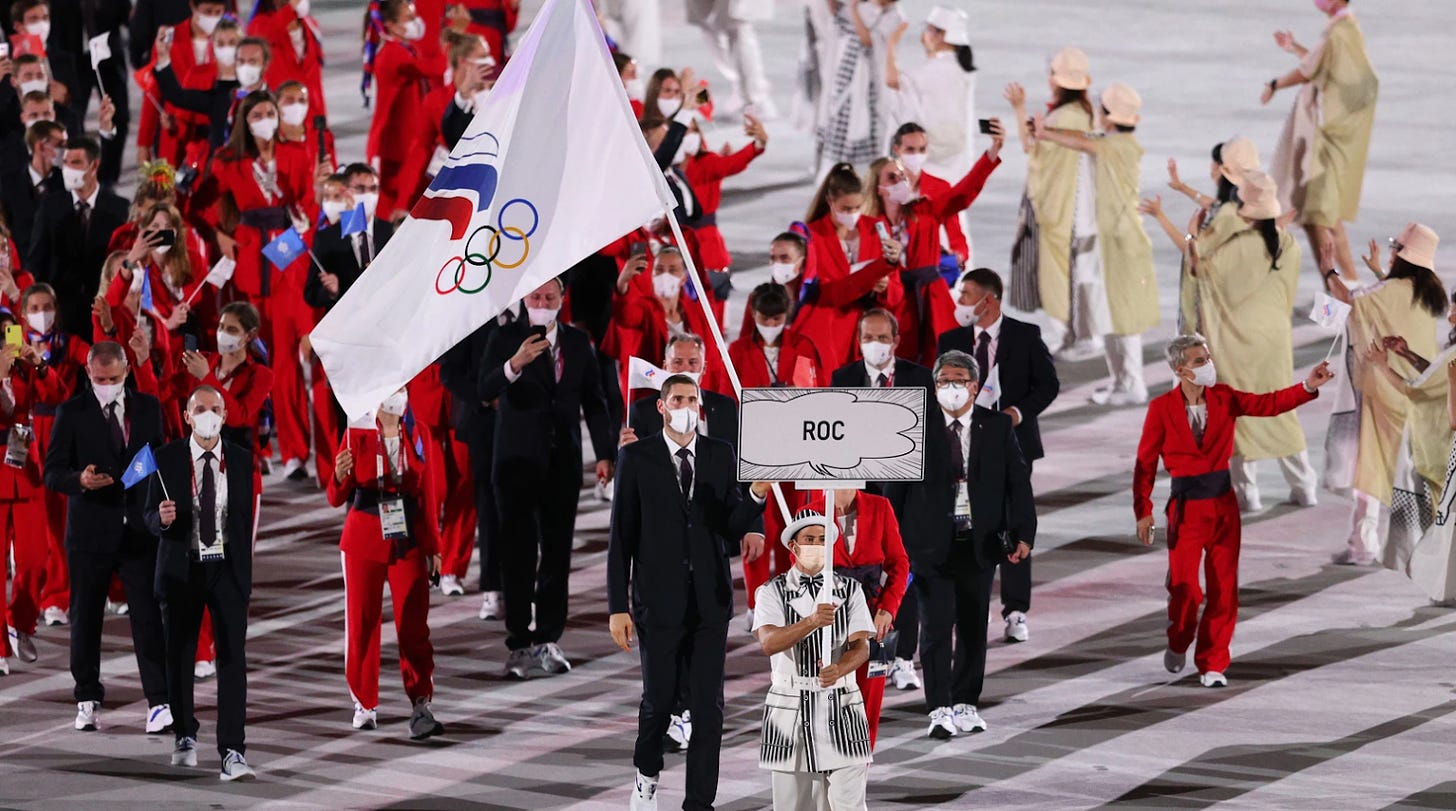
The Global Rights Compliance (GRC) recently released a report last month that claimed 10 of the 15 Russian athletes and seven of the 17 Belarusian athletes should be ineligible to compete based on the IOC ruling.
According to the GRC report, Russian cyclist Alena Ivanchenko ‘liked’ a social media post in March 2022 depicting propaganda for the war. Similarly, cyclist Tamara Dronova has been accused of having links to national security agencies and showing pro-war tendencies in public. In response, an IOC spokesman said they have reviewed all the athletes and have made their final decisions on who can compete.
For Ukrainian athletes, competing in the Olympics brings on a tinge of guilt while friends and neighbors are struggling to survive back home. Anna Ryzhykova, a Ukrainian hurdler, said her goal is not just to win gold but also to remind people of what is going on in Ukraine.
“You’re not doing it for yourself anymore. Winning a medal just for yourself, being a champion, realizing your ambitions—it’s inappropriate. Our victories are to draw attention to Ukraine.”
High jumper Oleh Doroshchuk is one of Ukraine’s top up-and-coming athletes. He recalls ignoring the air raid sirens as he trained. He continually questioned whether it was morally right to train for the Olympics while others defended the front lines.
Many Ukrainians who have died in the war include athletes and coaches with close ties to the Olympics. If you are a Ukrainian athlete lucky enough to have made it to Paris, you’ve had to have done more than make the team—you’ve also had to stay alive.
Politics in the Olympics
There were countless other times when politics and the Olympics collided. For example, when Tommie Smith and John Carlos raised their fists on the podium in the Black Power salute in Mexico City. Or when an Israeli athlete, coach, and nine hostages were killed in the Olympic village by a terrorist group. While I don’t mind politics in sports, I think we can all agree and hope politics don’t dethrone the main attraction.





